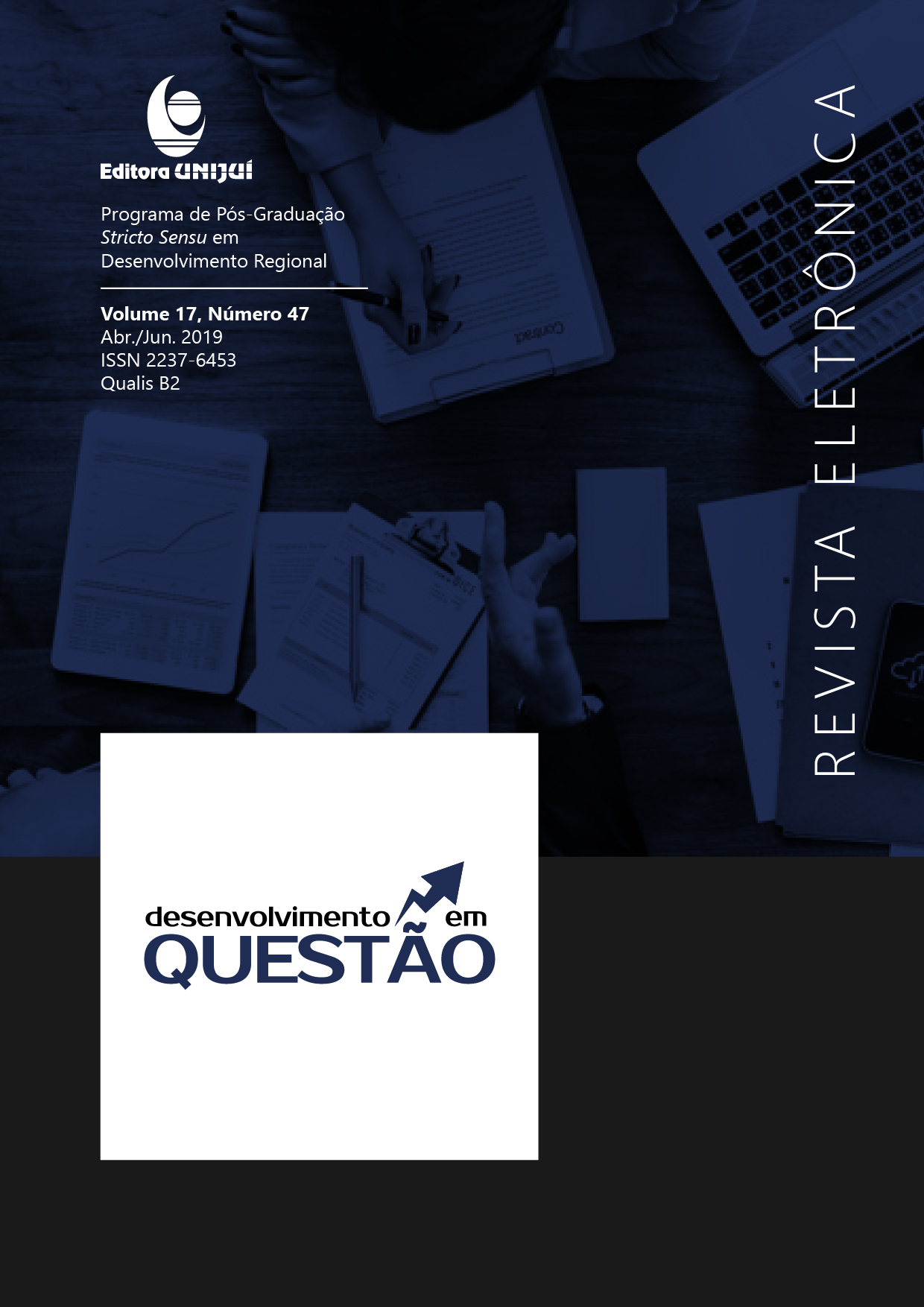O Desenvolvimento dos Municípios Nordestinos dedicados à Cotonicultura em Diferentes Paradigmas Produtivos no Período 2000-2010
DOI:
https://doi.org/10.21527/2237-6453.2019.47.301-323Palavras-chave:
Desenvolvimento, Municípios, Cotonicultura, SustentabilidadeResumo
O objetivo deste artigo é comparar os municípios nordestinos dedicados à cotonicultura convencional e à orgânica a partir das mudanças nos seus indicadores de desenvolvimento no período do ano 2000 a 2010. A partir da discussão sobre a cotonicultura no Nordeste brasileiro, a contribuição teórica apresentada neste artigo repousa na compreensão de que os diferentes paradigmas no meio rural, convencional e orgânico, promovem incidências distintas no processo de desenvolvimento. A cotonicultura convencional e a orgânica podem promover distintos conjuntos de bens econômicos, socioculturais e ecológicos que dão base para um processo de desenvolvimento sustentável no meio rural. O presente estudo é de natureza descritiva e adota uma abordagem quantitativa na coleta e análise dos dados. Foram coletados dados secundários sobre o PIB, o IDH e a quantidade de domicílios com bens duráveis nos municípios analisados. Este estudo adota uma abordagem comparativa na análise dos resultados. O desenvolvimento dos municípios dedicados à cotonicultura convencional tem demonstrado uma orientação mais forte para o modelo de desenvolvimento sustentável do que os municípios dedicados à cotonicultura orgânica.
Downloads
Publicado
Como Citar
Edição
Seção
Licença
Ao publicar na Revista Desenvolvimento em Questão, os autores concordam com os seguintes termos:
Os trabalhos seguem a licença Creative Commons Atribuição 4.0 Internacional (CC BY 4.0), que permite:
Compartilhar — copiar e redistribuir o material em qualquer meio ou formato;
Adaptar — remixar, transformar e criar a partir do material para qualquer fim, inclusive comercial.
Essas permissões são irrevogáveis, desde que respeitados os seguintes termos:
Atribuição — Atribuição — os autores devem ser devidamente creditados, com link para a licença e indicação de eventuais alterações realizadas.
Sem restrições adicionais — não podem ser aplicadas condições legais ou tecnológicas que restrinjam o uso permitido pela licença.
Avisos:
A licença não se aplica a elementos em domínio público ou cobertos por exceções legais.
A licença não garante todos os direitos necessários para usos específicos (ex.: direitos de imagem, privacidade ou morais).
A revista não se responsabiliza pelas opiniões expressas nos artigos, que são de exclusiva responsabilidade dos autores. O Editor, com o apoio do Comitê Editorial, reserva-se o direito de sugerir ou solicitar modificações quando necessário.
Somente serão aceitos artigos científicos originais, com resultados de pesquisas de interesse que não tenham sido publicados nem submetidos simultaneamente a outro periódico com o mesmo objetivo.
A menção a marcas comerciais ou produtos específicos destina-se apenas à identificação, sem qualquer vínculo promocional por parte dos autores ou da revista.
Contrato de Licença (para artigos publicados a partir de 2025): Os autores mantêm os direitos autorais sobre seu artigo, e concedem a Revista Desenvolvimento em Questão o direito de primeira publicação.











